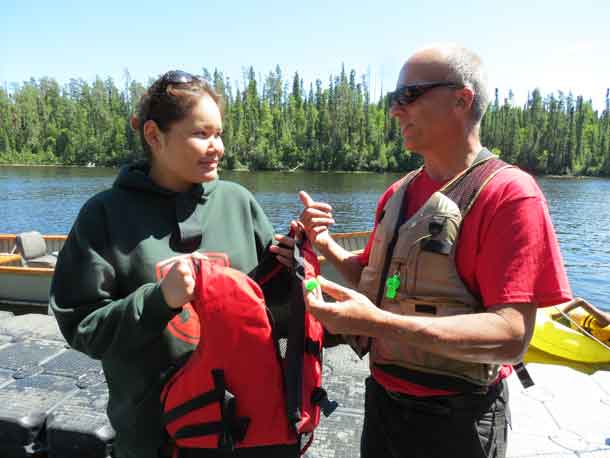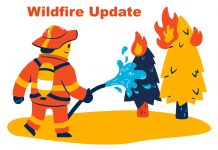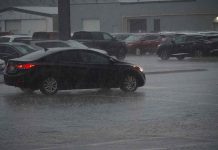

Credit – Sergeant Peter Moon, Canadian Rangers
By Peter Moon
CAMP LOON – The small planes that flew Junior Canadian Rangers home from Camp Loon, an advanced training camp for Junior Rangers, all carried extra baggage in the form of life jackets.
Each of the 143 Junior Rangers from 22 remote and isolated First Nations from across the Far North of Ontario who were at the camp in the bush north of Geraldton took home a life jacket for themselves and one for a member of their family.
The Far North of Ontario has the highest rate of Indigenous drownings in Canada for main two reasons – the large Indigenous population and the short summer and cold waters that prevent people from learning to swim. And a third reason is because there are few life jackets, which are in short supply and expensive when they are available.
The Junior Rangers received their life jackets as part of Operation Life Preserver, a project funded through the New Initiatives Fund of the National Search and Rescue Secretariat.
“It’s intended to decrease the number of drownings in the North,” said Gordon Giesbrecht, a University of Manitoba professor and a world authority on hypothermia and water safety, as he distributed the life preservers at the camp. “There’s a life jacket for every Junior Ranger. They get their name on it and they get a whistle to attach to it to summon help.”
The jackets came in three colours – yellow, green, and red – and the Junior Rangers got their choice of colours.
“We tell them this jacket is your friend,” he said. “First of all it can save your life. But it can’t do it if you’re not wearing it. We’re teaching them that you can use a life jacket for a lot of things. You can sit on it at lunch time, you can use it as a pillow. But when you are on water you wear it. We gave each of them an extra one to give to someone in their family unit when they get home. We hope the kids will influence their families.
“The goal is to get everybody who is in a boat in the North to have a life jacket and have it on when they are on the water.”
A survey of the Junior Rangers at the camp showed most of them, outside the winter months, are in a boat at least once a month, a quarter of them said they were in a boat daily or at least once a week, “and most of them, surprisingly, said they know how to swim,” Professor Giesbrecht said.
The Camp Loon training program had a large water component. The Junior Rangers learned how to drive power boats and use a paddle canoe. They learned boat craft, about boat engines, what emergency supplies and parts to take with them on boat trips, and they had to wear life jackets any time they around water at the camp, including when they were on a dock.
(Sergeant Peter Moon is the public affairs ranger for the 3rd Canadian Ranger Patrol Group at Canadian Forces Base Borden.)






